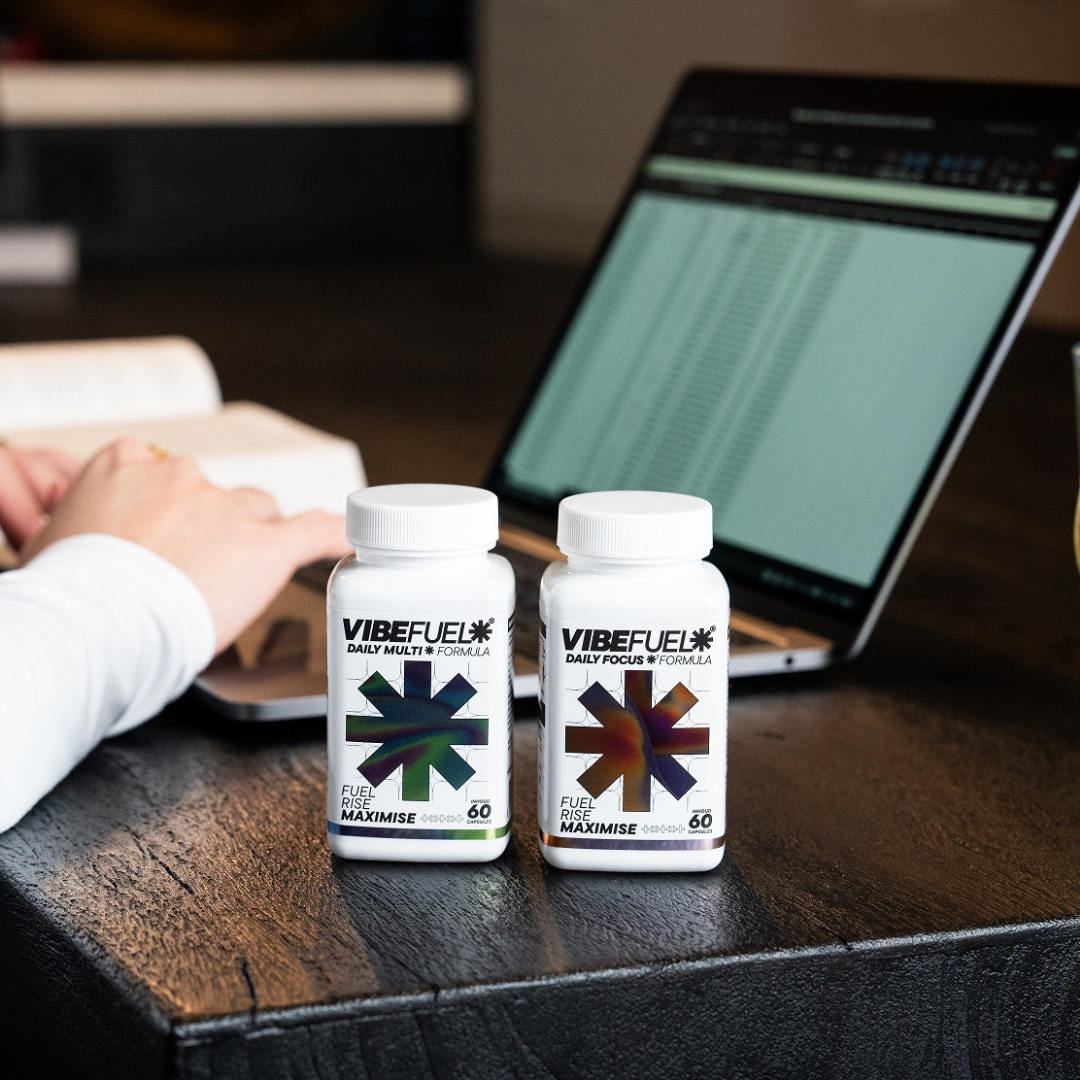The health of your gut plays a crucial role in how you feel and function. The term 'gut flora' refers to the billions of bacteria and other microorganisms that live in your digestive tract.
These microscopic inhabitants contribute greatly to your gut health, or the overall state of your digestion and bowel movements. A good balance of gut flora can help your body absorb nutrients better and support your immune system. In this article, you will discover how to improve your gut health and why it is so important to your overall well-being.
What is the importance of good gut health?
Good gut health is essential for an optimally functioning body. When your gut is in balance, you can absorb nutrients better, have a stronger immune system and generally feel more energetic.
In addition, healthy gut flora can help regulate your mood and optimize your metabolism. By maintaining a healthy balance in your gut, you not only support your digestion, but also your overall health and well-being.
Factors that influence gut health
There are several factors that can influence the balance and functioning of your intestines. They can reinforce or counteract each other, so that your intestinal health improves in one situation and worsens in another.
Below is an overview of common factors and how they can directly or indirectly affect your gut:
- Nutrition: An unbalanced diet can disrupt the composition of your intestinal flora, leading to digestive problems and reduced nutrient absorption.
- Stress: Chronic stress increases the production of stress hormones, which can affect the intestinal barrier and create an unfavorable intestinal environment.
- Sleep quality: Lack of sufficient or good quality sleep can disrupt intestinal balance, as your body has less time to recover.
- Exercise: Sufficient exercise stimulates intestinal peristalsis, improves blood circulation and helps maintain healthy intestinal flora.
- Medication: Some medications, such as antibiotics, can kill the good bacteria in the intestines, making it easier for harmful bacteria to gain the upper hand.
- Lifestyle choices (smoking and alcohol): Excessive alcohol consumption and smoking can irritate the intestinal lining and disrupt the balance of gut bacteria, leading to impaired bowel function.
Symptoms of impaired bowel function
When your bowel function is deteriorating, you can often recognize this by specific signals from your body. These symptoms can range from mild to severe and can have a direct impact on your daily activities and overall well-being. Below is an overview of common signs:
- Bloating: A persistent bloated stomach may indicate a disturbance in your intestinal flora or digestive process.
- Changes in bowel movements: This can manifest as both diarrhea and constipation and often indicates an imbalance in the intestines.
- Fatigue: Less efficient nutrient absorption can lead to a lack of energy and persistent fatigue.
- Abdominal pain or cramps: Recurring pain in the lower abdomen may indicate irritation or inflammation in the intestines.
- Increased susceptibility to infections: Because a significant portion of your immune system is located in the gut, a disruption can lead to an increased risk of disease.
- Mood swings: your intestines play a role in the production of important neurotransmitters. Disturbed intestinal function can therefore manifest itself in irritability or depression.
You might also be interested in: How can you improve your lung function?
Measuring intestinal health
If you want to check how healthy your intestines are, you can look at several factors. A common way is to observe your bowel movements: changes in frequency, color or consistency can indicate an imbalance.
Your energy level, degree of bloating and any abdominal complaints are also important indicators. In addition, it is possible to do specialized tests, such as a stool test, in which the composition of your intestinal flora and any inflammation values are analyzed.
Such tests can provide additional insight into which types of bacteria are present in large or small quantities, and whether there is a disturbed balance. By combining this information with your own experiences, you can create a targeted plan to support and optimize your intestinal health.
Improving gut health: how do you do that?
There are many ways to support and improve your gut health, but it starts with making healthy choices in your daily life. By consciously paying attention to nutrition, lifestyle and environmental factors, you can create an environment in which your gut can function optimally.
Think of small adjustments to your diet or lifestyle that together can make a big difference to your digestion and overall well-being.
Varied food
A varied diet is one of the most important pillars of healthy intestinal flora. By eating different types of food every day, you give your intestines the opportunity to come into contact with various nutrients. Think of vitamins, minerals and antioxidants from vegetables and fruit, but also healthy fats from nuts, seeds and oily fish.
In addition, this keeps the bacteria in your intestines alert and supports their diversity; different types of bacteria thrive on different nutrients.
In addition, with varied food you stimulate a more efficient digestion, which means you suffer less from, for example, a bloated feeling. The most important thing is that your meals are so balanced that your digestion remains in top condition, and you feel better both mentally and physically.
Increase your fiber intake
Getting enough fiber is essential for a well-functioning intestine. Fiber ensures smooth bowel movements and contributes to healthy intestinal flora. They provide food for the good bacteria in your intestines, allowing them to multiply and fulfill their protective role.
For example, by adding more vegetables, fruits, whole grains, legumes and seeds to your meals, you can increase your fiber intake and thereby improve the flow of your digestive tract. This not only helps to reduce symptoms such as constipation and bloating, but also promotes the absorption of important nutrients, which benefits your overall health.
Probiotics and prebiotics
Probiotics and prebiotics each play a separate but complementary role in the well-being of your gut. Probiotics are living bacteria that can replenish your gut flora, while prebiotics serve as a food source for these bacteria. Together, they support the natural balance of your gut.
Probiotic foods, such as yogurt or fermented vegetables, can help increase the number of good bacteria in your digestive tract. Prebiotics, found in fiber-rich foods like certain vegetables and oats, then stimulate the growth and activity of these bacteria.
By consciously including probiotics and prebiotics in your diet, you not only support a healthy intestinal environment, but you also benefit from more efficient digestion and better absorption of essential nutrients.
Stay hydrated
Sufficient fluid intake is essential for healthy digestion. Water helps keep the intestinal contents supple and thus supports a smooth flow in your digestive tract.
Hydration is also essential for the transport of nutrients and waste products throughout your body. By drinking regularly, you prevent stools that are too dry and thus complaints such as constipation.
In addition, optimal hydration helps your intestines maintain healthy bacteria, as these microorganisms benefit from a well-hydrated environment. This not only ensures good bowel movements, but also overall better intestinal health.
Sufficient exercise
By exercising regularly, you give both your body and your digestion a big boost. Exercise stimulates intestinal peristalsis (the natural movements of your intestines) and ensures better blood circulation, which means nutrients are transported more efficiently.
In addition, exercise helps regulate hormones that influence your stress levels, which indirectly keeps your gut flora in balance. Don't just think about intense sports activities; a daily walk or bike ride can also make a world of difference to your gut health.
Stress management
Chronic stress has a direct impact on your gut health, because long-term stress hormones can damage the intestinal barrier and thus disrupt the balance of your intestinal flora.
In addition, stress can make you more likely to reach for unhealthy foods or eating habits, which can further unbalance your digestion. By consciously dealing with stress and regularly planning relaxing activities - such as meditation, breathing exercises or yoga - you give your body and mind the chance to recover.
This way you create an environment in which your intestinal bacteria can develop better, resulting in a healthier, lasting balance in your digestive tract.
Get enough sleep
Sufficient and good quality sleep is a crucial, but often underestimated aspect of gut health. During your sleep, important recovery processes take place, including the regulation of hormones that support digestion and the immune system.
Too little or poor sleep can lead to an increased production of stress hormones, which can throw the intestinal flora out of balance. By optimizing your sleep pattern - think of a regular rhythm and a relaxed evening routine - you give your body the chance to repair your intestines, which makes your digestion run smoothly and you feel more energetic during the day.
Avoid excessive alcohol consumption and do not smoke
Excessive alcohol consumption and smoking introduce various harmful substances into your body, which can negatively affect the balance in your intestines. Alcohol can damage the protective mucus layer in your intestinal wall, making it easier for harmful bacteria to cause damage.
Smoking, on the other hand, can reduce blood flow to your digestive system and throw your gut flora out of balance. By limiting your alcohol intake and quitting smoking, you give your gut the chance to recover and perform its natural functions optimally. This not only ensures better digestion, but also a stronger and more resilient immune system.
Extra tip: taking supplements
Taking certain supplements can also be a very valuable addition to supporting your gut health, provided you combine this with a healthy diet and lifestyle. For example, consider supplements with nootropics , vitamins, minerals or specific bacterial strains that can have a beneficial effect on your gut flora.
They can help to supplement any deficiencies in your diet and stimulate the growth of good bacteria. It is important to continue to focus on a balanced diet and not lose sight of the other points mentioned; after all, supplements are only part of the bigger picture for optimal gut health.



To share:
Improve lung function
What is Biohacking?